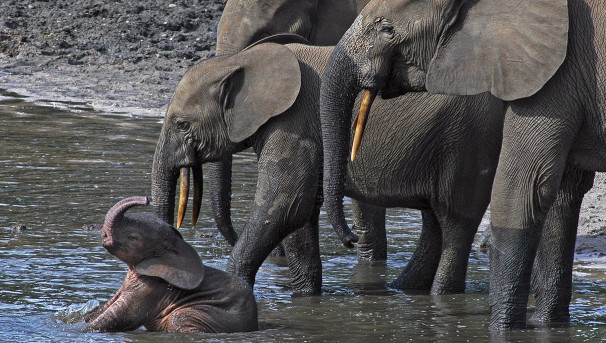Saving Elephants, Finding Poachers
Your support can help protect elephants
The rainforests of Central Africa are home to forest elephants, an endangered species. Each year, poachers kill 15,000 forest elephants for their ivory. Fewer than 40,000 survive today. By studying and monitoring the sounds of elephants, The Elephant Listening Project (ELP) and its partners are working to help protect these majestic elephants and the rainforests needed by wildlife and people. Our focus is on perhaps the most important forest elephant population in Africa—because they are in a well-protected landscape and because this is the population that visits the Dzanga Bai in Central African Republic.
Recently, ELP has been shifting energy to train researchers in all aspects of acoustic monitoring, providing the platform to hone broadly applicable skills like project management, logistics, and hypothesis-based scientific thinking. The combination of three very bright Congolese researchers and a series of hands-on workshops has resulted in an expert acoustic team capable of independently running a 50-site acoustic grid in Nouabalé-Ndoki National Park, Congo—from deployment to analysis!
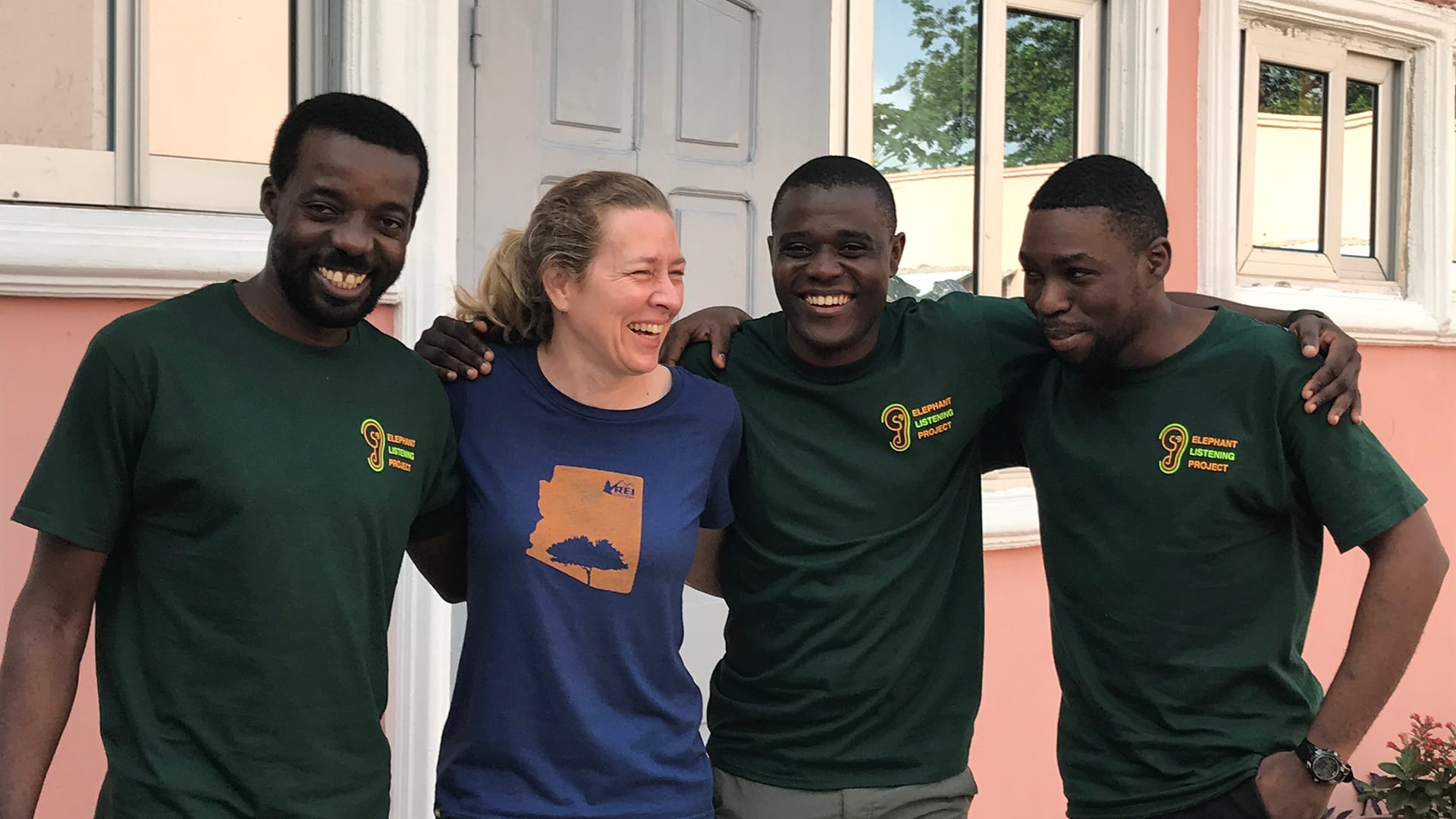
However, the research grant that allowed us to establish this study and to train our acoustic team ends in September 2019. So, it is imperative that we find a way to keep this project going for another year, and this is where we need your help. The unique information that our team extracts from these continuous recordings can provide managers of protected areas with what they need to improve the survival chances of forest elephants. If elephants survive, all of the biodiversity held within these forests survives along with them. Perhaps as important, we need to keep the team employed, engaged, and continuing to learn so as to embed conservation capacity in Central Africa for the long term.
Please help us succeed!
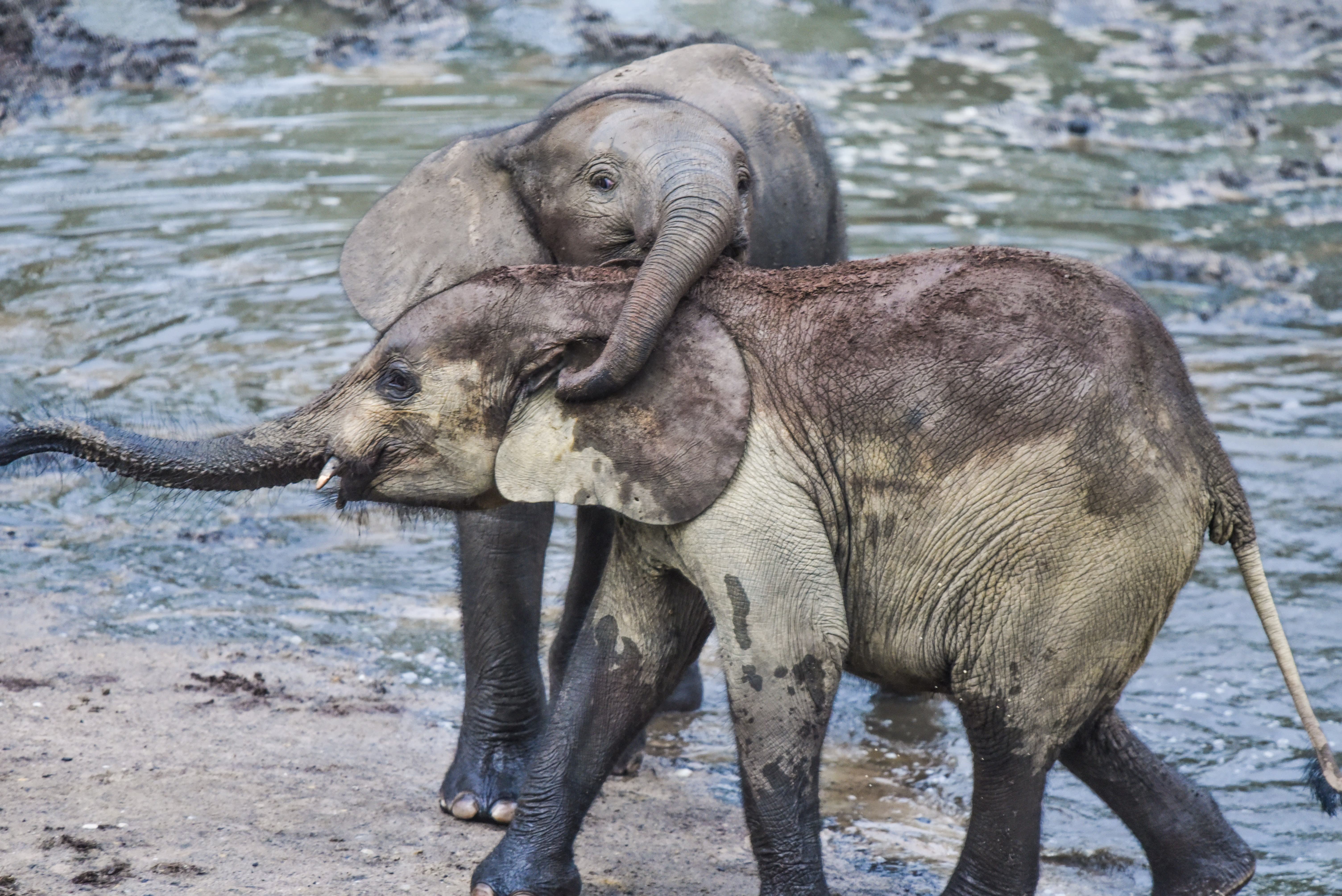
The Acoustic Grid
Over the last two years, we have applied our expertise in acoustic monitoring to establish the largest grid of acoustic sensors ever attempted in a tropical forest. With 50 sensors listening to 1250 square km of rainforest in Nouabalé-Ndoki National Park (NNNP), in the northern Republic of Congo, we are recording in unprecedented detail where elephants are moving in this landscape and, to some degree, what they are doing there. We also record the activities of ivory poachers and can map where they are and when.

With these data, the Elephant Listening Project has created maps for the first time showing where the elephants are within the forest, and where the poachers are finding them. These new technologies reveal key information to help managers of protected areas to fight against poaching. Your support helps the Cornell Lab use the science of sound to understand and protect wildlife around the world.
Capacity Building
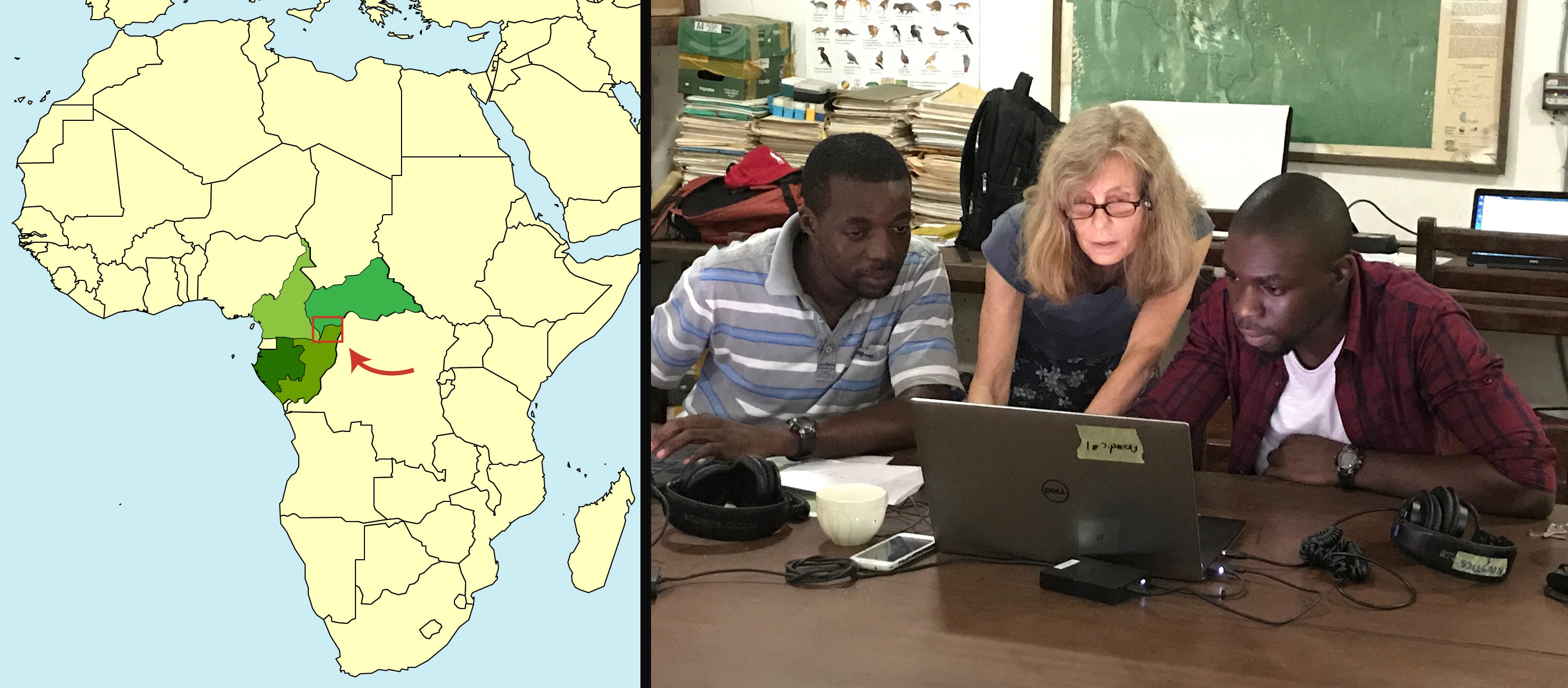
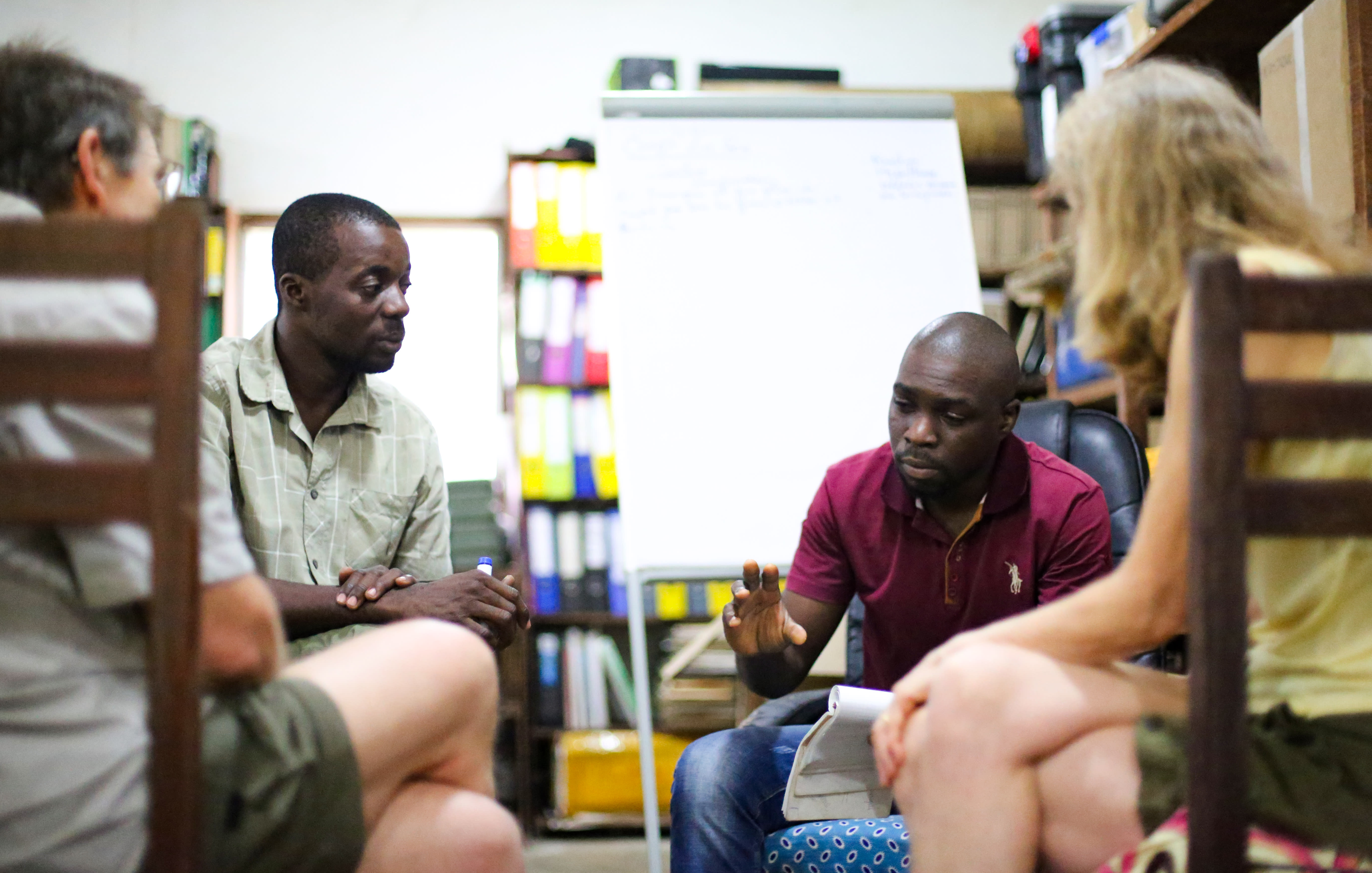
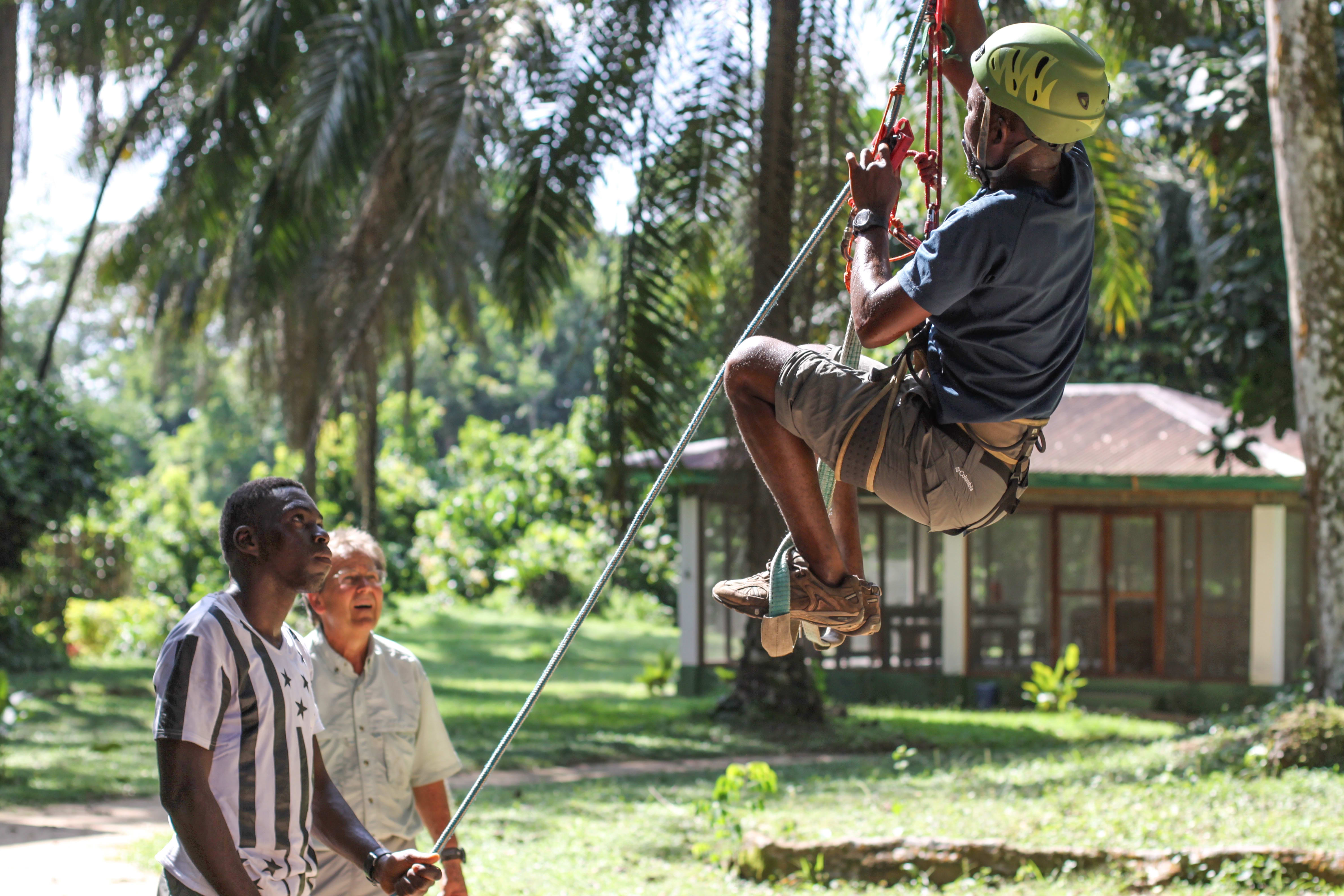
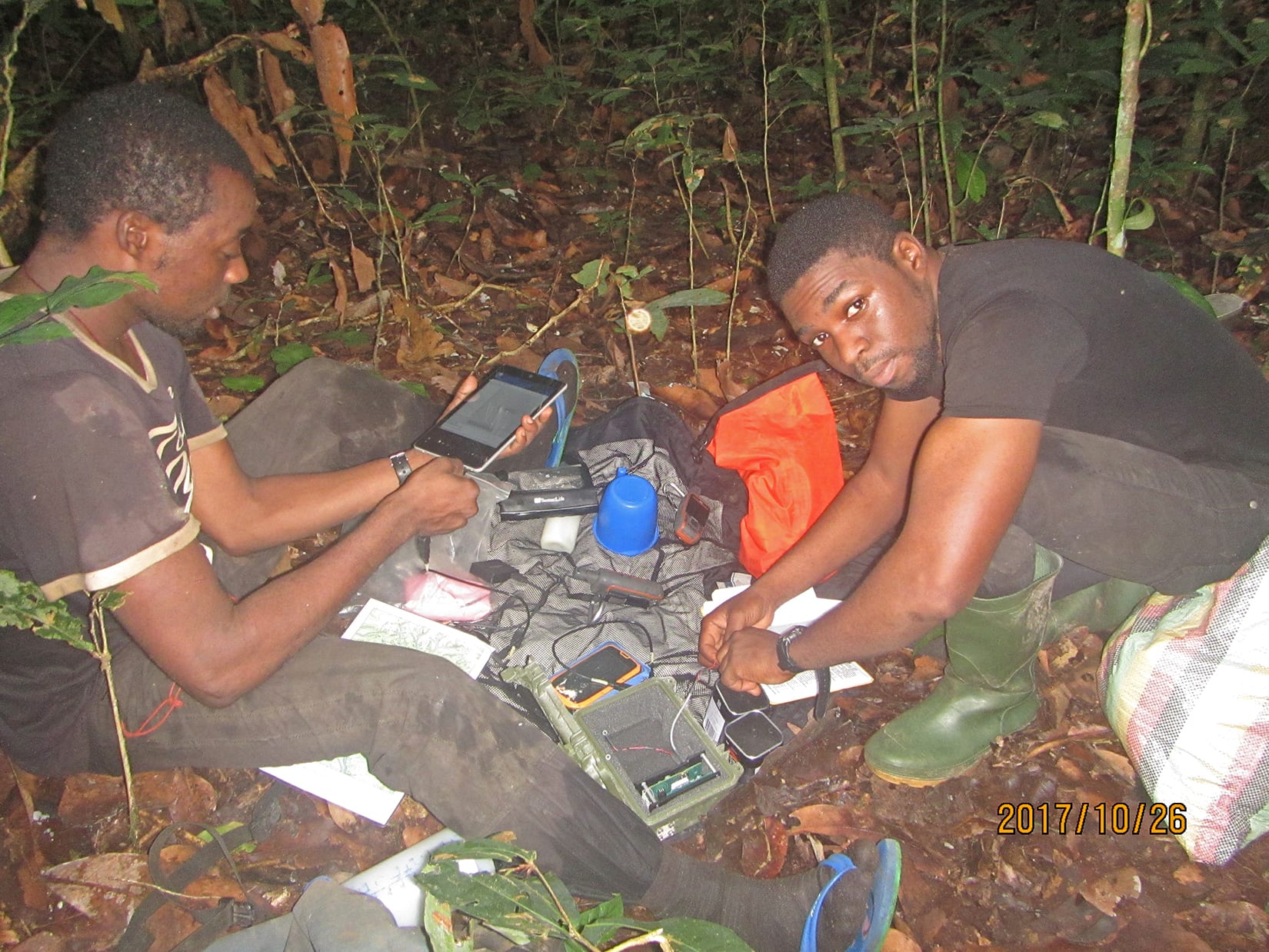
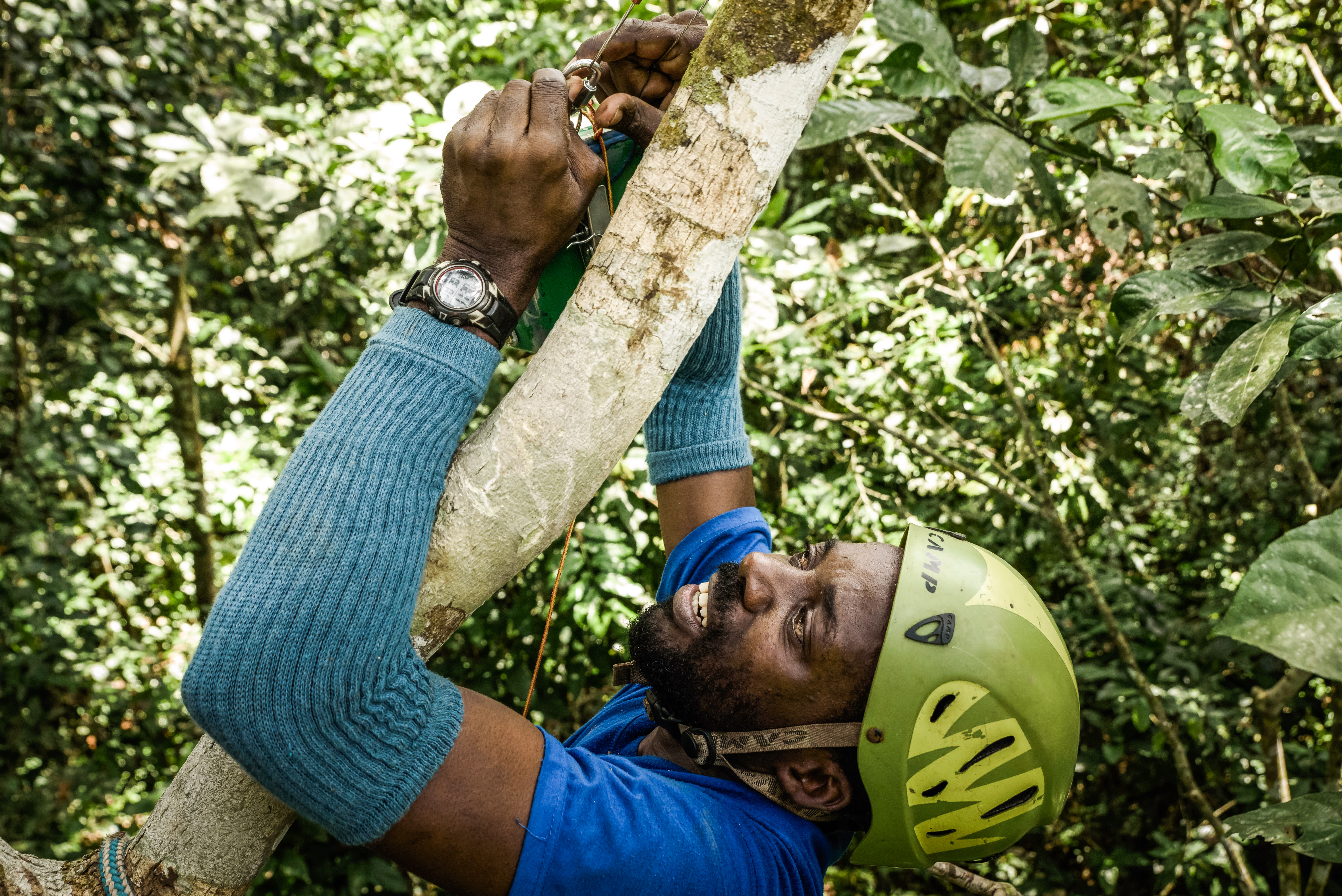
$20
Boots on the ground
No gift is too small to make an impact. Gifts at this level can help provide our team with critical equipment such as socks, waterproof boots, and rain jackets.
$50
Equipment costs
Help provide the team with vital equipment such as headlamps, sleeping bags, and sleeping pads while they trek through the forest to protect the elephants.
$75
Food costs
Our team spends 150 days of the year traveling through rough rainforest terrain in order to maintain our acoustic grid. Support the whole team (food and per diems) for a day in the forest with a gift of this amount.
$100
Acoustic grid
Help us purchase supplies such as 256 GB SD cards and batteries to keep our acoustic grid running so we can continue to monitor gunshots and the movement of the elephants throughout the forest.
$250
Keep the team hydrated
Staying hydrated is important when covering a 1,250 square km area. Help us replace water-purification filters for the team working in the forest.
$500
Capacity building
Cover the cost of a two-week training workshop at the park headquarters in Bomassa, as ELP members continue to teach new skills to the team leaders.
$1,000
Support the team
Support two members of the acoustic team (salary and benefits) for one month of the year.
$6,000
Support the team
A gift of this amount will cover salary and benefits for one team member for the entire year.

